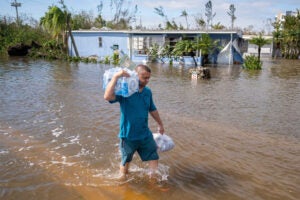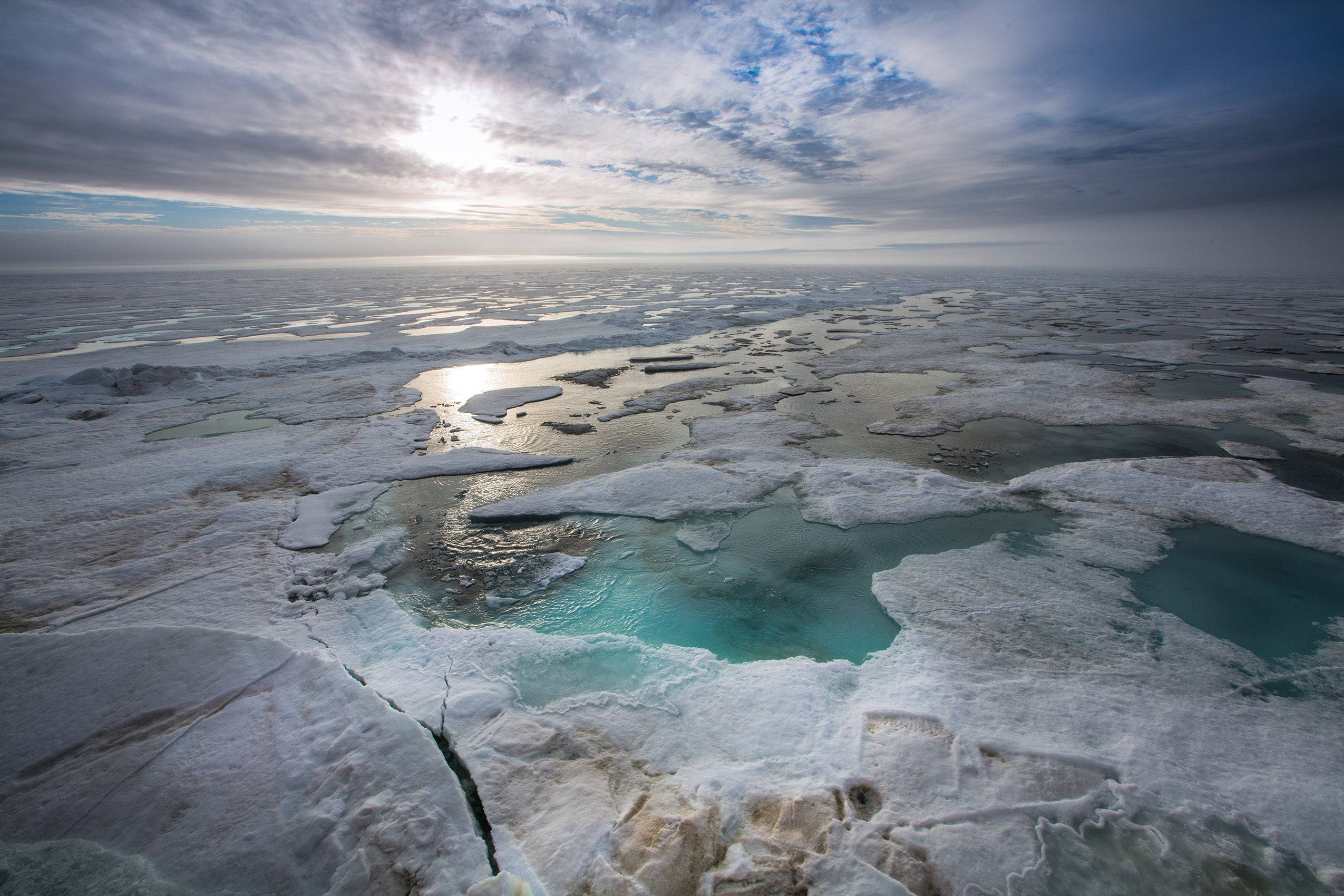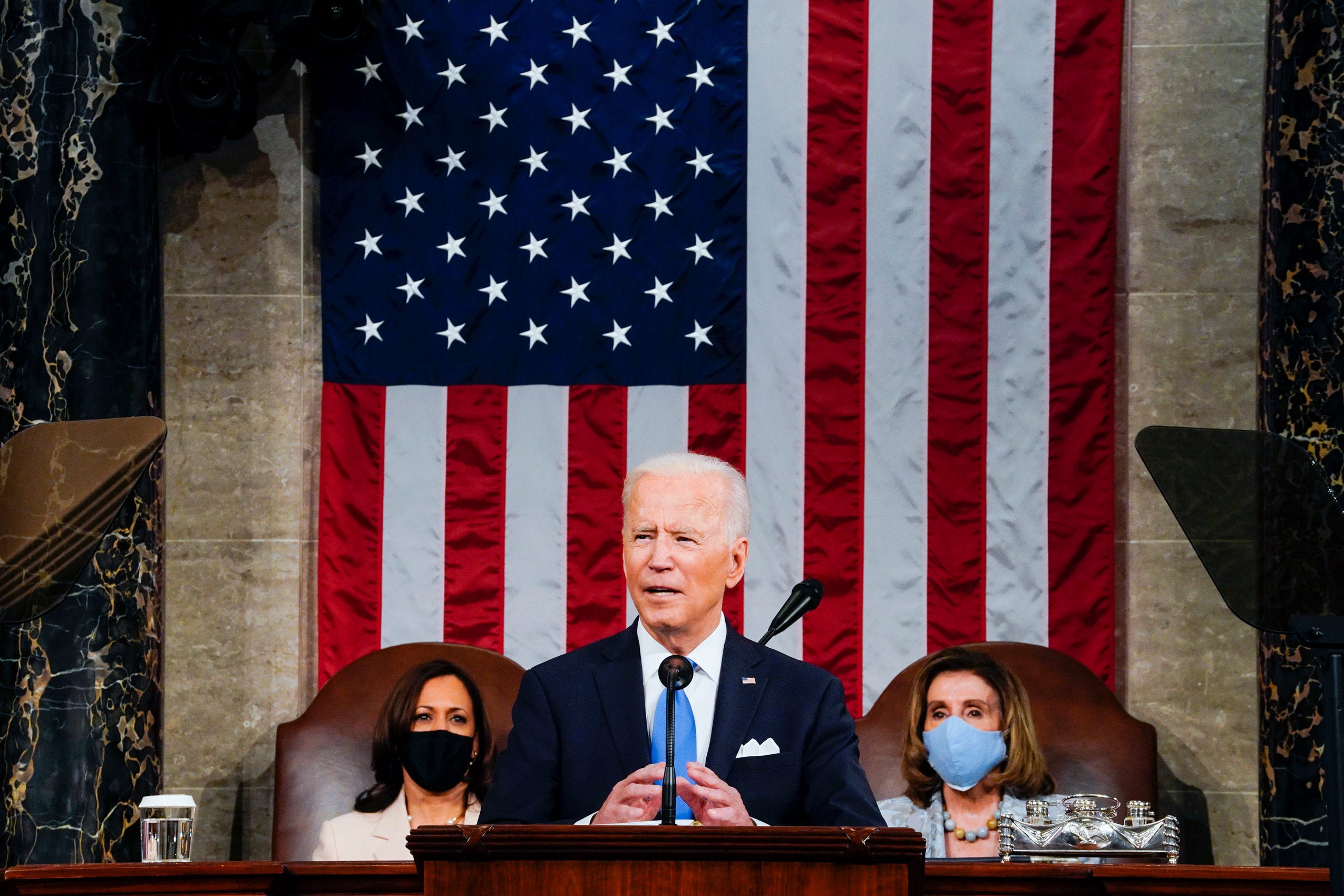People
Hannah Perls
-
Why FEMA is changing rules for disaster aid
January 22, 2024
Two numbers help explain the Biden administration’s latest overhaul of federal disaster aid for individuals. One: The aid program has rejected 46 percent of the…
-
Civil rights law offers a tool for communities of color trying to stop unequal exposure to pollution. Over and over, people here have tried to…
-
Soaring insurance costs threaten hurricane-prone US states
October 10, 2023
Welcome back. In today’s newsletter, I have investigated the intersection of insurance and global warming where the two are increasingly in tension: in the south-eastern…
-
How to unwind and find your ‘happy place’
September 8, 2023
Members of the Harvard Law community discuss their favorite ways to loosen up and find their “happy place.”
-
How I discovered my passion in the law
September 5, 2023
Professors, lecturers, and staff members share how they found their way to the subjects they are most passionate about — and why they stay there.
-
Back in 2021, President Joe Biden announced the administration’s new Justice40 Initiative through Executive Order 14008. The program’s aim is that 40 percent of the…
-
Back in 2021, President Joe Biden announced the administration’s new Justice40 Initiative through Executive Order 14008. The program’s aim is that 40 percent of the…
-
The Colorado River hits a boiling point
February 8, 2023
Push is coming to shove on the West’s most important river. The seven states that share water from the Colorado River are as close to…
-
Disasters displaced more than 3M Americans in 2022
February 6, 2023
More than 3 million adults were forced to evacuate their homes in the past year because of a natural disaster, according to a new Census…
-
EPA blocks mine project that threatened crucial Alaskan salmon runs
February 1, 2023
The Environmental Protection Agency moved to block the Pebble Mine in Alaska on Tuesday, preventing mining waste discharges into the Bristol Bay watershed. It’s a…
-
White House directs agencies to use EJ screening tool
February 1, 2023
The White House is directing federal agencies to steer billions of dollars in funding to 27,000 small, disadvantaged communities that were identified through a controversial…
-
Majority of disabled people never go home after disasters
January 6, 2023
Advocates have been trying for years to draw attention to the harsh conditions that people with disabilities face after natural disasters. Now federal data shows…
-
Hurricane Ian exposes cracks in Florida’s flood insurance market
October 14, 2022
Harvard Law expert Hannah Perls explains why so many Florida homeowners lack flood insurance and what should be done about it.
-
A mostly Black Alabama county has no municipal sewer service. Can the 1964 Civil Rights Act be used for environmental justice?
November 16, 2021
In one of the poorest counties in America, at the core of the Deep South’s rural “Black Belt” where sharecroppers worked cotton fields long after Emancipation, sanitation conditions sometimes seem to belong in the antebellum South. With no municipal wastewater treatment for the predominantly Black communities, most residents devise their own septic systems, which may or may not work, and which can leave raw sewage accumulating in backyards. “Nineteenth-century” diseases like hookworm have been found in many residents. Now, the Biden administration is making Alabama’s Lowndes County a test case in environmental justice, applying a never-before-used provision from the 1964 Civil Rights Act that advocates say could lay the groundwork for how the federal government addresses some of the worst problems plaguing communities of color around the country. ... Just days after taking office, the White House issued an executive order titled Advancing Racial Equity and Support for Underserved Communities Through the Federal Government, and one week later followed with another, Tackling the Climate Crisis at Home and Abroad, noted Hannah Perls, a fellow at the Environmental & Energy Law Program at Harvard Law. “There’s nothing different about the laws between Obama and Trump and now Biden, it’s just about having the political will to enforce them,” Perls told MarketWatch. Perls thinks the Justice Department, through its investigation, is likely to issue guidelines for how the Alabama and Lowndes agencies may come into compliance with what it determines to be necessary. It may also require measures to mitigate the harm done by the lack of adequate sewer system. That will likely take time and energy, she said.
-
Hannah Perls ’20 and Hana Veselka Vizcarra of the Harvard Law School Environmental and Energy Law Program assess the new administration’s efforts to address climate change.
-
Evaluating President Biden’s first 100 days
April 28, 2021
As President Joe Biden approached his 100th day in office, Harvard Law Today asked faculty members and researchers from across Harvard Law School to weigh in on the new administration’s agenda, actions, accomplishments, and failures to date.
-
The fight for environmental justice
April 27, 2021
North Carolina is one of the nation’s largest producers of pork. The industry is primarily centered in agricultural portions of Eastern North Carolina, home to a number of Black and Indigenous communities, and a surging Latinx population...The coexistence of air pollutants and communities of color isn’t an anomaly, says Hannah Perls, J.D. ’20, but is representative of the environmental injustices that many communities of color across America live with... “There’s that great saying – the system isn’t broken; it’s working exactly as it was designed,” she says. “Often environmental justice communities live at the intersection of several inequitable and interlocking systems and ideologies: racism, capitalism, and white supremacy, among others.” ... “Environmental justice means that you need involvement and participation of peoples of all colors and all income levels in the development, implementation, and enforcement of our protection laws,” says Richard Lazarus, the Howard J. and Katherine W. Aibel Professor of Law. “This is not supposed to be top-down.” Lazarus, who leads the EELP alongside Jody Freeman, the Archibald Cox Professor of Law, has spent much of the past 30 years of his legal career studying and trying to solve the environmental disparities faced by communities of color, and most recently worked on the Biden administration’s transition team and helped elevate the issue to be a top priority for the president.
-
Red states that sued the Biden administration for tinkering with the estimated cost of emitting greenhouse gases may have fired a premature opening shot in the legal war over the president's climate agenda, environmental lawyers say. But the lawsuit provides a preview of the courtroom brawls that will ensue once the Biden team finalizes a new social cost of carbon, a key metric that assigns a dollar value to the harm caused by planet-warming emissions. "I think this particular complaint is unlikely to go anywhere," said Hana Vizcarra, a staff attorney at the Environmental and Energy Law Program at Harvard Law School. "But it's a precursor to what we're going to see in response to any rulemaking that comes out of this administration." ... Hannah Perls, a legal fellow with Harvard Law School's Environmental and Energy Law Program, said she still expects the Biden administration to lower the discount rate in its final social cost of carbon.




